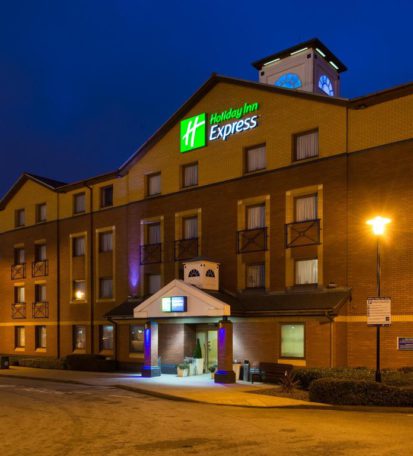Business Travel
3 Hidden Costs of DIY Business Travel: How an Agency Eliminates Them

Many opt for DIY business travel management believing it saves money and streamlines processes. Yet, this approach often leads to unexpected expenses that can quickly add up.
When employees book travel independently, they may overlook potential savings from corporate discounts, preferential rates, or bundled services.
Furthermore, the lack of a standardized travel policy can result in inflated costs for flights, accommodations, and ground transportation. By utilizing a travel agency, businesses can access expertise and resources that mitigate these hidden expenses efficiently.
Travel agencies not only help navigate the complexities of business travel, but they also provide value through established partnerships with top corporate travel management companies and insights into cost-effective options.
1. Unforeseen Expenses of Self-Managed Travel
Managing business travel independently can introduce several unforeseen expenses that can strain a company’s budget. These costs often arise unexpectedly and can significantly diminish the savings anticipated from DIY business travel. Below are some critical areas where expenses can escalate.
- Last-Minute Itinerary Changes
Travelers often encounter situations that necessitate last-minute itinerary adjustments. This can include unexpected meetings, flight cancellations, or personal emergencies. Changing flights or accommodations at short notice typically incurs higher fees.
For instance, airlines frequently charge premium rates for same-day flight changes. A last-minute hotel booking may result in poor pricing compared to advanced reservations. Companies may end up paying up to 50% more when changes occur last minute, ultimately negating cost-saving measures.
- Inefficient Route Planning Costs
Independent travelers might not be familiar with the best routes or modes of transport, leading to inefficient travel plans. Taking longer, more expensive routes can significantly inflate travel costs.
For example, choosing to drive instead of flying may seem economical initially but could lead to increased fuel costs and longer travel times. This inefficiency can also reduce productivity, as employees spend more time in transit rather than focusing on their core tasks. Smart agencies utilize extensive networks to ensure optimal travel routes and minimize downtime.
- Hidden Transaction Fees
DIY business travel often involves several hidden transaction fees that accumulate unnoticed. Booking platforms and payment methods sometimes charge service fees or handling fees per transaction.
For example, credit card fees for international transactions can add 2-3% to the overall cost. Additionally, booking sites may have extra charges for baggage or other add-ons that are not initially apparent. These fees can accumulate, particularly when multiple bookings are made, leading to unanticipated costs that impact the bottom line.
2.Time Consumption and Productivity Loss
Travel planning often consumes significant time and detracts from essential business activities. Effective travel management can streamline processes and allow employees to focus on their core responsibilities. The hidden costs arise from extended research efforts and complex travel arrangements that can hinder productivity.
- Extended Research Hours
When employees undertake travel planning, they often spend excessive hours researching flights, accommodations, and transportation options. This research can extend for days, causing valuable work time to be lost.
For instance, an employee may compare numerous flight options and schedules, resulting in hours spent on websites and phone calls instead of working on revenue-generating tasks.
- Average Research Time: Employees can spend 5-10 hours planning a single trip.
- Cost of Lost Time: With a median hourly wage of $30, this could equate to $150-300 in lost productivity per trip.
Employing a travel management agency mitigates this loss, allowing professionals to handle arrangements efficiently.
- Complex Travel Arrangements
Complex itineraries often create additional confusion and lengthy processes. Changes in schedules, multiple destinations, and varied accommodations can complicate travel significantly.
An employee attempting to manage a multi-city trip may face:
- Multiple Point Contacts: Interactions with various airlines, hotels, and transportation services.
- Itinerary Changes: Last-minute adjustments that require time-consuming coordination.
This complexity can lead to delays, increased stress, and further productivity losses. By utilizing agency services, all travel logistics can be consolidated, offering a streamlined experience that saves time and reduces disruption to daily operations.
3. Overlooked Details and Compliance Issues
Many organizations encounter unseen pitfalls when employees manage their own business travel. Issues such as adherence to travel policies and compliance with visa requirements can lead to significant complications.
- Neglecting Travel Policy Adherence
When employees arrange their own travel, they often deviate from established travel policies. This disregard can lead to increased costs due to non-compliant bookings, such as choosing premium accommodations or selecting non-approved airlines.
Inconsistent adherence undermines collective bargaining power, which can result in the organization missing out on corporate discounts. Additionally, lack of oversight can create risks regarding employees’ safety. Without a centralized system, it’s challenging to ensure travelers are following company guidelines regarding travel safety and expense reporting.
- Visa and Work Permit Oversights
Another critical aspect of DIY business travel is the potential for visa and work permit errors. Employees may overlook necessary documentation, leading to entry denials and unexpected delays.
In some cases, individuals may not be aware of the specific regulations governing their top destination country. Failure to obtain the correct visa can result in costly fines, not to mention disrupted business activities.
Benefits of Professional Travel Management
Effective travel management can lead to substantial benefits for organizations. It not only helps in reducing costs but also ensures that unexpected situations are handled with expertise. This section highlights the key advantages that come with using professional travel management services.
Cost Savings and Budget Optimization
Utilizing a professional travel management agency can lead to significant cost savings. These agencies often have established relationships with suppliers, allowing them to negotiate better rates for flights, accommodations, and services.
By implementing strategic travel policies, they also help organizations avoid unnecessary expenses.
Key areas of savings include:
- Vendor contracts: Agencies can leverage bulk purchasing agreements to secure lower rates.
- Compliance monitoring: Ensuring that employees adhere to travel policies can prevent overspending.
- Data analytics: Agencies analyze travel patterns to optimize future bookings, further reducing costs.
Ultimately, this structured approach allows companies to optimize their travel budgets more effectively.
Expertise in Handling Unanticipated Situations
When unexpected travel challenges arise, having a professional travel management agency can be invaluable. These experts are equipped to handle various issues, such as flight cancellations, delays, or emergencies.
For instance, they provide:
- 24/7 support: Agencies often offer round-the-clock assistance to address urgent travel issues.
- Crisis management: They are skilled in coordinating alternative arrangements quickly and efficiently.
This level of expertise allows organizations to minimize disruptions and maintain productivity, ensuring that business operations run smoothly despite unforeseen circumstances. Professional travel management thus enhances resilience in a constantly changing travel landscape.
Frequently Asked Questions
What unexpected expenses can arise when arranging business travel independently?
When arranging travel independently, costs such as hotel resort fees, cancellation penalties, and surprise local taxes may surface. Additional charges from airlines, such as baggage fees or in-flight service fees, can also significantly affect the budget.
Can self-managed travel result in higher overall costs compared to using a travel agency?
Yes, self-managed travel can lead to higher overall costs. Companies often miss out on group discounts and fares that travel agencies can secure through established partnerships and volume purchasing.
Why should companies consider travel agencies to avoid increased travel expenditures?
Travel agencies offer experienced personnel who understand the nuances of the travel industry. Their expertise can help companies avoid unforeseen expenses and ensure compliance with corporate travel policies, ultimately saving money.
How do travel management services contribute to cost-saving for businesses?
Travel management services streamline the booking process and provide tools for tracking expenses. They often implement standardized policies, which can reduce unnecessary spending and encourage cost-effective choices among employees.
What are common overlooked aspects of travel budgeting that can affect a business’s bottom line?
Common overlooked aspects include the costs of travel insurance, additional fees for itinerary changes, and the impact of employee downtime during travel. These factors can accumulate and negatively impact the overall travel budget.
In what ways can a travel agency provide financial benefits over DIY business travel planning?
A travel agency can leverage its industry connections to negotiate better rates for flights, accommodations, and services. Additionally, they provide valuable insights into cost-saving opportunities that individuals may not recognize when booking independently.




